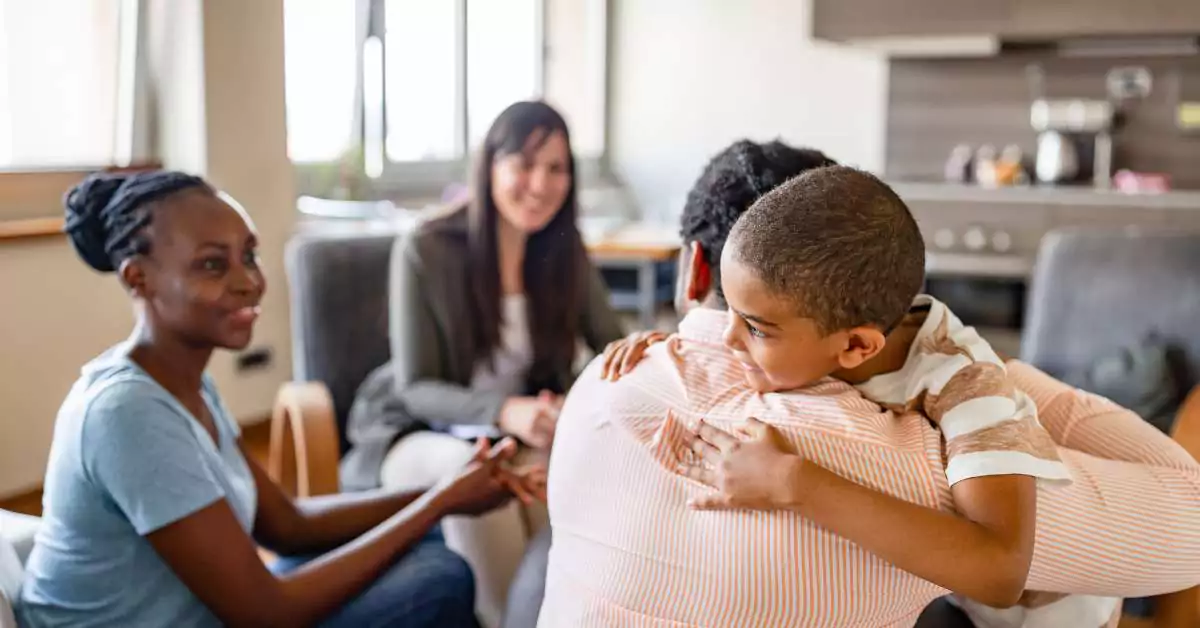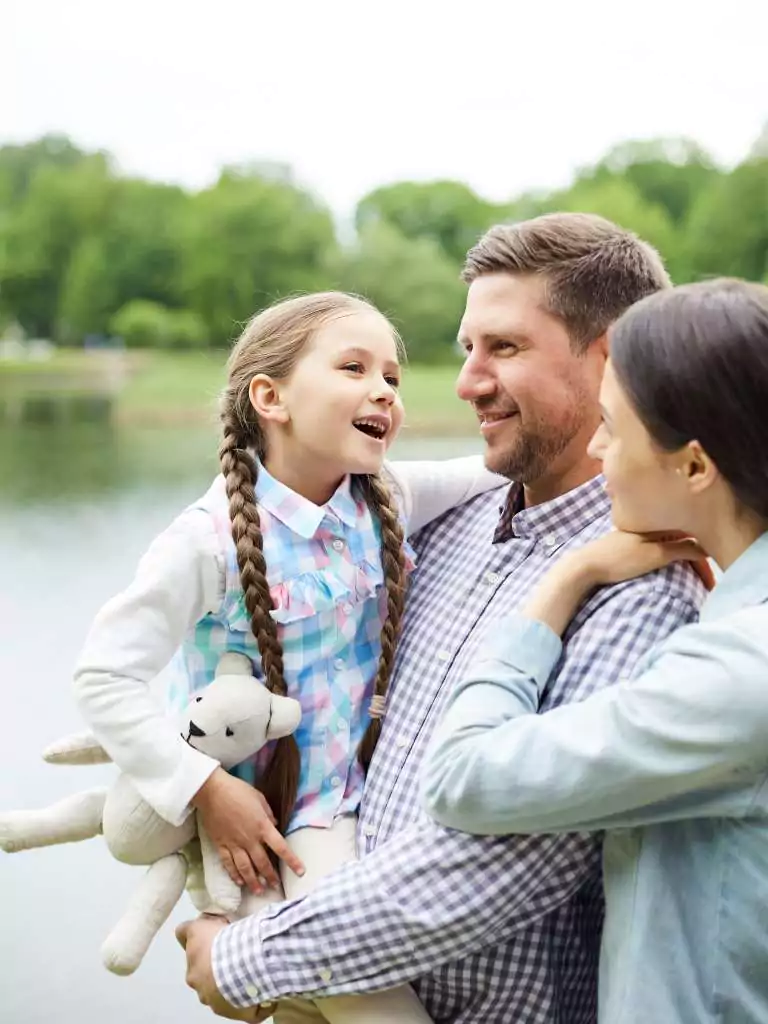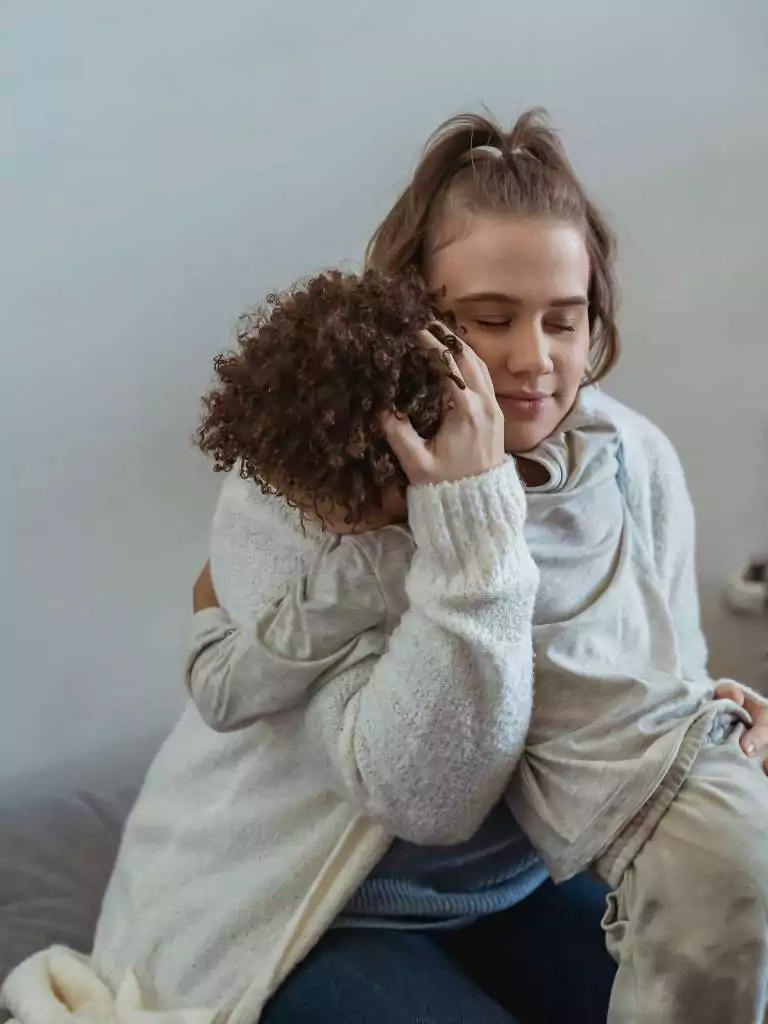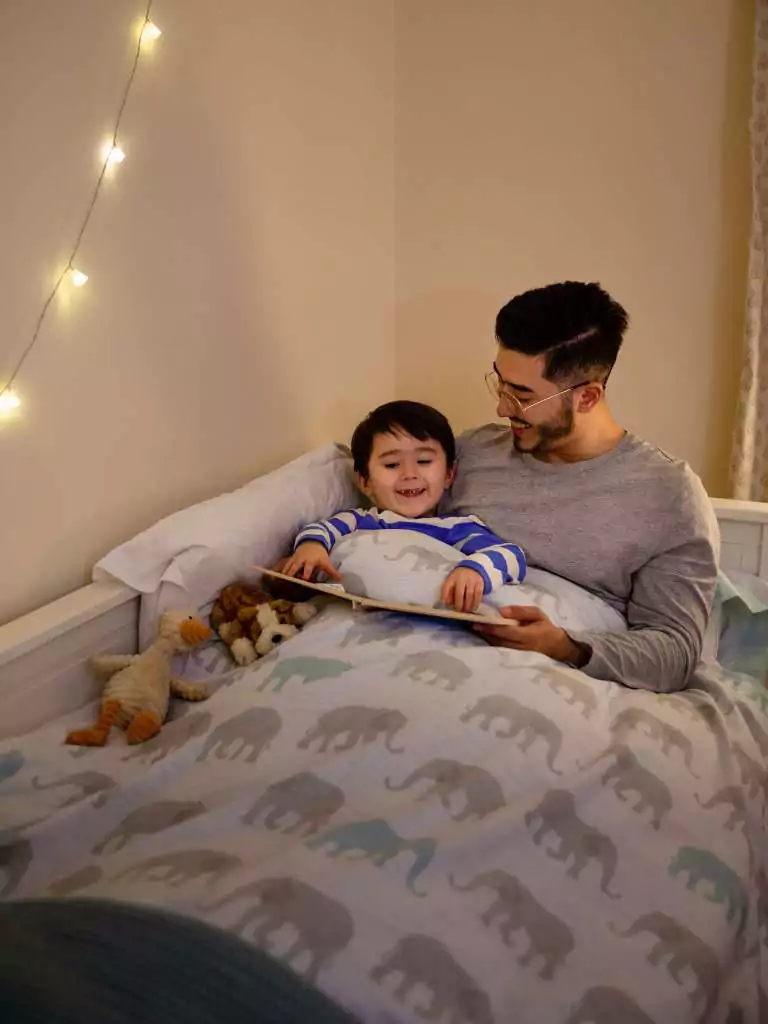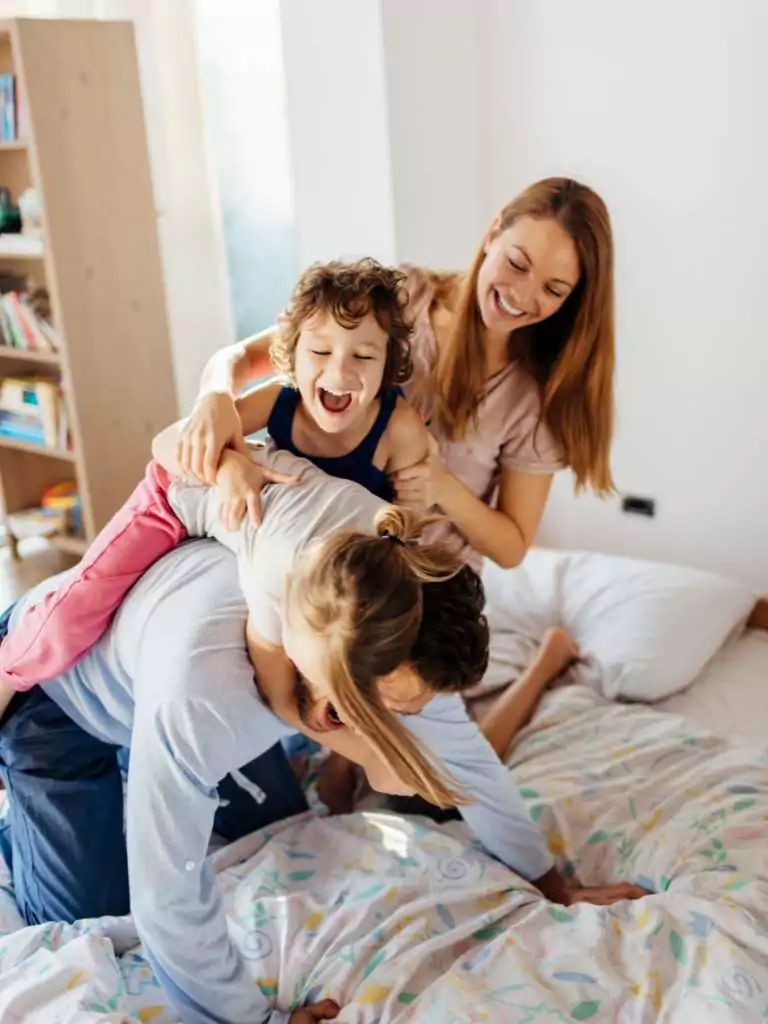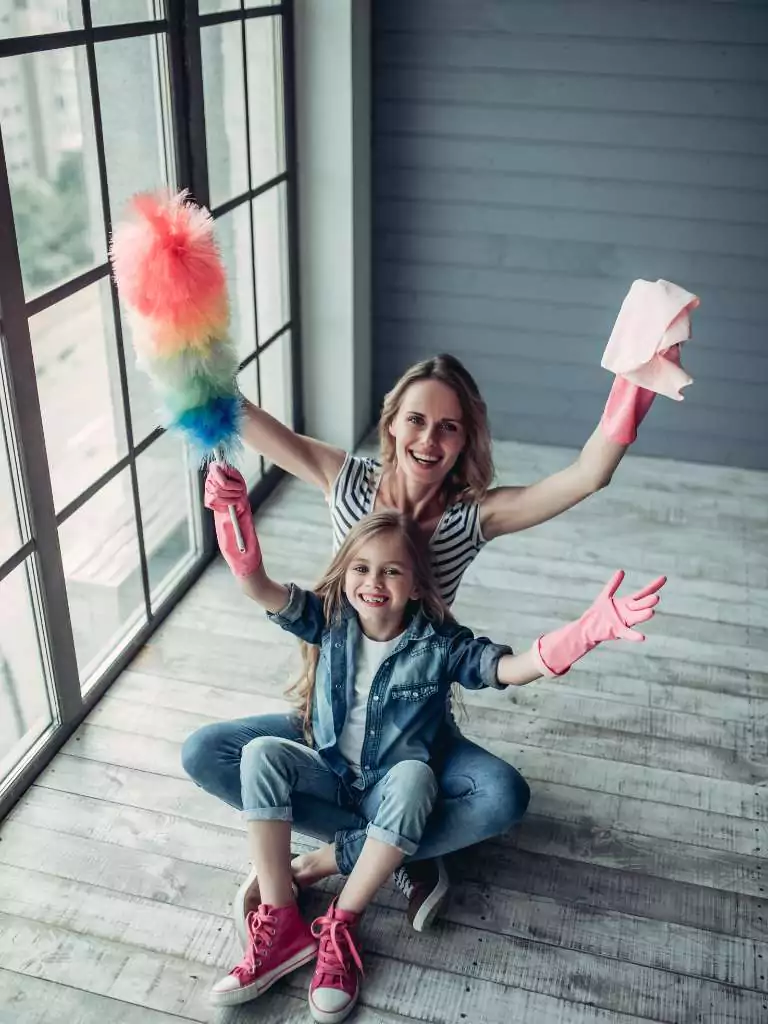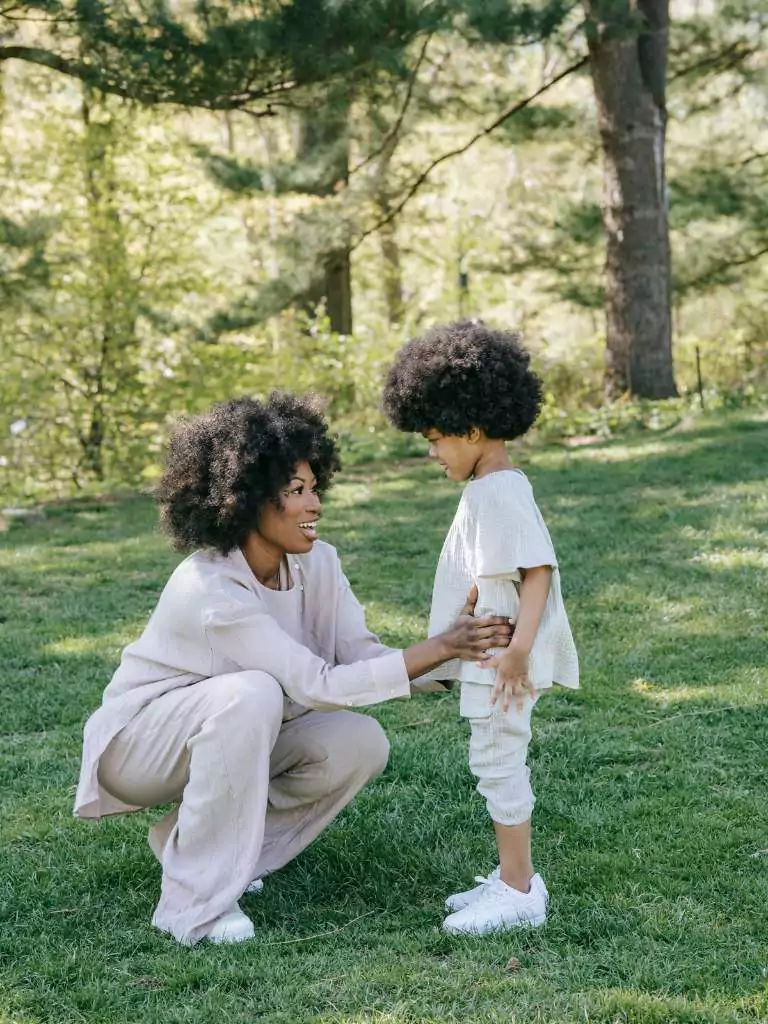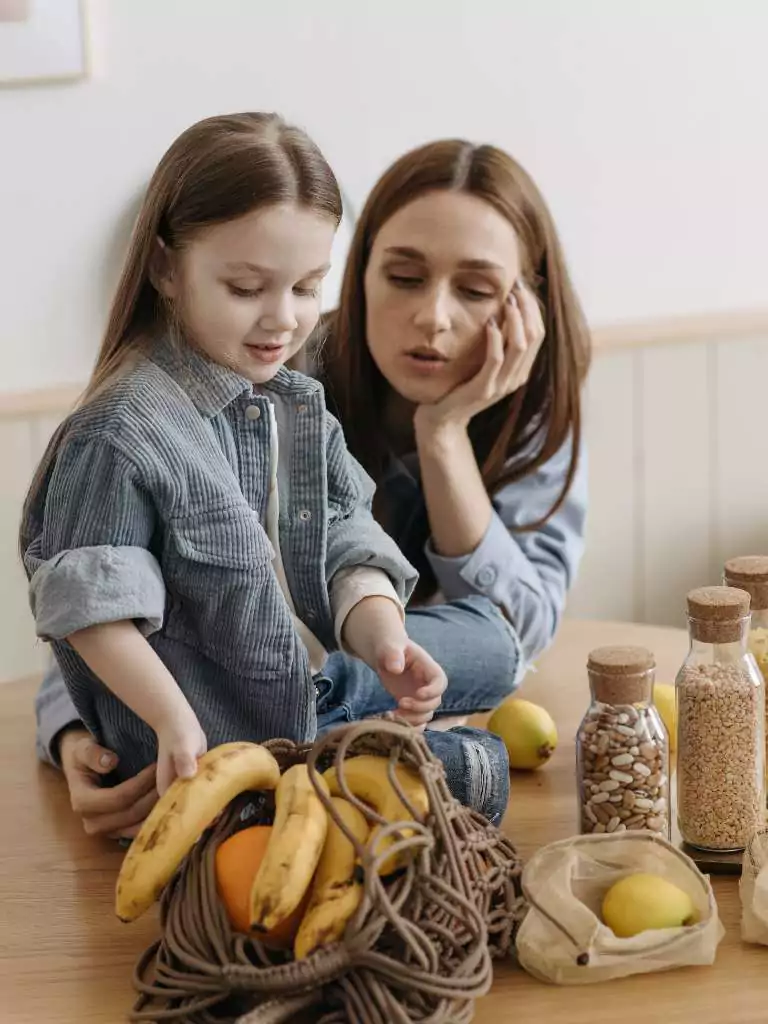Let’s be real – parenting isn’t always soft music and storybooks. Sometimes, it’s spilled cereal, toddler meltdowns, and you whisper-screaming into your coffee.
And amidst the chaos, there’s one thing that often slips through the cracks: parents and kids mental health.
Before I knew about intentional parenting or positive parenting tips, I used to think mental health was just something grown-ups dealt with. But guess what?
Little humans have big feelings too – and they need us to help them understand those emotions. And here’s the twist: our mental health matters just as much. If we’re running on empty, we can’t pour into them.
So today, we’re unpacking 10 psychology-backed tips to support both parents and kids’ mental health – with a little humor, some real talk, and a whole lot of heart.
Let’s explore the kind of parenting psychology that actually works in the real world (like, “we’re-late-for-school-again” real).
1. Talk About Feelings Like It’s No Big Deal
Feelings aren’t dangerous. They’re just… feelings. One of the most powerful things I ever did was normalize emotions in my house.
If my kid said, “I’m sad,” instead of fixing it right away, I’d say, “That makes sense. I feel sad sometimes too.” Boom—emotional safety.
According to child psychologists, validating emotions reduces anxiety and improves emotional regulation in both kids and adults. So yeah, labeling emotions = parenting superpower.
2. Your Calm is Contagious
Ever noticed how your kid’s meltdown magically gets worse when you’re stressed? Yep—our nervous systems talk to each other.
It’s called co-regulation, and it’s science-y proof that positive parenting solutions start with us. When we stay calm (easier said than done, I know), we help their brains feel safe.
So next time chaos erupts, take a deep breath. Pretend you’re a tree in a storm. Trees don’t scream.
3. Set Routines (and Stick-ish to Them)
Routines give kids a sense of predictability, which is like a cozy mental blanket. But spoiler: you don’t need military precision. Just consistent-ish rhythms – like reading every night, or brushing teeth together.
These small rituals give kids a sense of safety and control, and that’s gold for their mental health. Plus, you’ll stress less when your mornings don’t feel like a reality show challenge.
4. Make Room for Play (Yes, You Too)
You know what fixes a cranky day faster than yelling? A five-minute dance party. Play is therapy for kids, and honestly, for us too.
It releases happy chemicals like dopamine and oxytocin – aka nature’s mood boosters. Conscious parenting tips often forget to mention how healing laughter and silliness can be. So go ahead, build that pillow fort.
Jump in. Don’t just watch—play.
5. Ditch Perfection, Embrace Progress
You are not a robot. You are not supposed to parent like one. When we model self-compassion (like saying, “I messed up, I’m learning”), we show our kids that making mistakes is part of life – not a mental breakdown waiting to happen.
It’s a powerful piece of parenting knowledge that often gets missed in the perfectionist trap. Trust me, real beats perfect every time.
6. Teach Positive Self-Talk (and Actually Use It Yourself)
Kids are little mirrors. If they hear us saying, “I’m so dumb” or “I can’t do this,” guess what they’ll learn to say? That’s why I started using positive affirmations for kids (and myself).
Stuff like, “I’m trying my best” or “It’s okay to feel nervous.” These tiny phrases build resilience like little bricks – and they stick around way longer than gold star charts.
7. Keep the Communication Channel Wide Open
When my daughter told me she didn’t want to talk because “adults don’t listen anyway,” it stung. And she was kind of right. Intentional parenting means actually hearing what they’re saying – even when it’s inconvenient or messy. Ask open-ended questions.
Put your phone down. Show them their voice matters. Because the safer they feel talking now, the more likely they’ll come to you later.
8. Protect Your Mental Health Like It’s Sacred (Because It Is)
Repeat after me: burnt-out parents can’t raise emotionally secure kids. I used to think self-care was bubble baths. Now I know it’s setting boundaries, asking for help, and going to therapy if needed.
Parenting psychology research shows that a parent’s well-being directly impacts a child’s development. So no guilt if you need alone time, a nap, or a night off. That’s not selfish – that’s survival.
9. Practice Emotional Check-Ins (Without the Awkward)
You don’t have to start every meal like a therapy session, but try this: “Color check – what color are you feeling today?” Green = calm, red = mad, etc.
These low-key emotional check-ins give kids (and you) a language to express what’s going on inside. It’s like sneaking parenting techniques into dinner time, and it works wonders for connection.
10. Don’t Do It Alone – Find Your Village
Mental health needs community. You weren’t meant to parent in isolation. I found my people through mom groups, parenting podcasts, and even Pinterest (yes, really).
Parenting solutions often sound like “do this checklist,” but sometimes the solution is simply: talk to someone. Let someone carry part of the weight.
We all need a hand sometimes, and there’s no shame in that.
Conclusion
Parenting is beautiful and exhausting and hilarious and overwhelming – sometimes all before 10 a.m. But here’s the good news: supporting parents and kids mental health isn’t about being perfect. It’s about showing up, learning, laughing, and loving hard.
Try one or two of these tips this week. Talk about feelings. Say something kind to yourself. Let your kid see you being human—and healing.
And hey, if no one told you lately: you’re doing better than you think. Keep going.
